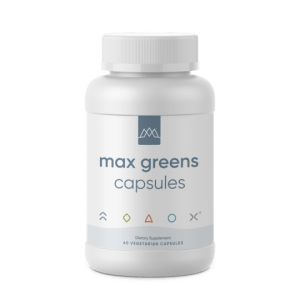New Year’s Resolutions: Failed!
Why are resolutions so easy to create, but difficult to even start, much less maintain?
Especially when it comes to eating well and taking care of yourself, change can feel hard in the beginning. Yet you know that investing in your wellness and well-being repays dividends down the road.
Sometimes you get a little push to make that change. Maybe your blood work came back and your doctor gave you a stern warning to clean up your diet and lifestyle. Perhaps you got on the bathroom scale and winced as the number went up.
You might be tempted to make drastic changes when you learn such things. You resolve to only eat salads for the next three weeks or go to the gym for one hour every day, five days a week.
Stay on the Health Track with Concrete Goals
While lofty ambitions are applaudable, they oftentimes collapse because they lack the small, steady, sustainable goals that help you stay on the course towards better health.
Instead of making herculean changes that crash and burn over time, researchers find goal setting helps initiate and maintain health behavior over time. Small, cumulative lifestyle changes — including weight loss and exercise — could be easier to achieve and sustain than larger changes.
Studies show goal setting helps specific behaviors including significantly increasing fiber intake, being more consistent with exercise, and keeping on track rather than dropping out. [1]
Making those changes takes some initial effort. In one study among the 46 middle-aged African-American and Hispanic men and women, participants had to learn how to incorporate those changes into the context of daily life. [2]
While challenging at first, they found creating a 12-week period makes an ideal timespan to make small changes a part of daily life.
Researchers here found to optimize goal setting and create action steps to make those goals a reality, you need to:
- Be specific with your goals.
- Create small, but lofty goals.
- Commit to those goals.
- Create an effort to maintain those goals.
- Acknowledge potential barriers along the way.
- Stay confident about those goals.
13 Ways to Build Healthy Habits
These 13 habits are perfect when you’re short on time but ready to create steady, lasting healthy behaviors that turn into healthy habits. Many only take five or 10 minutes to cultivate daily but cumulatively do wonders for your health, happiness, and well-being. You might tackle a few at once or master one a week for 13 weeks.
1. Make most of your meals and snacks whole, unprocessed foods. Nature-made foods often don’t include ingredient lists. These are the nutrient-dense foods that will keep you lean, healthy, and help maintain your most vibrant life. That doesn’t mean you never eat processed foods, which are sometimes more convenient and make meals and snacks more exciting but aim to make 80 – 90 percent of your diet
whole foods. If you struggle to meet your fruits and vegetable requirement, try a supplement like Max Greens. Just 2 capsules give you 1 serving of fruit and 2 servings of vegetables. Also available in a yummy chocolate-flavored powder to mix into smoothies and drinks!
2. Gradually taper off sugar. “Switching from candy to celery in one day is just too much of a shock to your system,” says Susan Albers, Psy.D., in Diet & Weight Loss Motivation Secrets You Wish You Knew. “Not only will you be extremely hungry and irritable, but you’ll also be going through junk food withdrawal at the same time. It also sets you up for overeating or binge eating later.” How you taper off sugar might mean switching from processed, sugary foods to fresh fruit. Eventually, you’ll appreciate the natural sweetness of whole, unprocessed foods.
3. Cover the nutrient bases you might not get from food. Even the healthiest diet might have nutrient deficiencies, which can create serious health issues over time. [3] At the very least, a multivitamin (Men’s or Women’s) can cover any nutrients you might not get in the right amounts from food. Researchers find we consume about 20 times more inflammatory omega-6 fatty acids compared with anti-inflammatory omega-3 fatty acids, increasing your risk for disease including obesity. [4] Even if you’re eating wild-caught fish regularly (most of us don’t), an omega-3 formula can help balance those fatty acids and reduce your disease risk.
4. Drink more water. When you hear nutrients, you probably think of vitamins and minerals. But the most important nutrient often becomes neglected: Water. “Think about it: Your body is 83 percent water,” says Jonny Bowden, Ph.D., in The 150 Healthiest Foods On Earth. “You need water for every single metabolic process in the body. Water is necessary to digest and absorb nutrients and vitamins. It carries away metabolic waste. It helps ‘flush’ fat and toxins through the liver and kidneys.” Dehydration impacts nearly every bodily function, from blood pressure to how your brain functions. Get a 32-ounce BPA-free bottle, and fill it two or three times a day with filtered water. [5] Add a little lemon or lime if you need some zing.
5. Find your de-stressor. Copious research shows that chronic stress adversely impacts heart health, mood, immunity, and so much more. [6] You’re more likely to get sick, you increase your risk for disease (including depression), and you’re not very pleasant to be around. You can’t eliminate stress, but you can cultivate a more resilient mindset that helps you better cope with the inevitable curveball life throws your way. Those habits needn’t be time-consuming. Even five minutes of deep breathing or meditation can dial down your stress levels.
6. Take five minutes every day to focus on your big “why.” You’ve got an overriding, inspiring reason why you want to lose 20 pounds or lower your blood pressure. Among those reasons might include being able to play with your grandkids, having more energy and sex drive, or getting into a new swimsuit by summer. Pinpoint your big “why” and keep it handy when you’re tempted to veer off course. You might keep a vision board that collaborates images of the strong, fit person you want to be. Or you might describe your best self in a few paragraphs, read it daily, and edit as you grow and become that best version of yourself.
7. Create your gratitude routine. When you focus on the good in your life, almost everything improves. You feel happier, your blood pressure drops, and you show up as the best version of yourself. [7] Gratitude comes in many forms. Find the one that works for you. That might include a gratitude journal, calling a different person daily for a month to thank them for something they did, or volunteering at a nearby soup kitchen. You make others feel better, and the gesture is almost guaranteed to lift your own spirits.
8. Fit in more steps. Researchers recommend adults fit in at least 10,000 steps daily. [8] That’s about five miles, which sounds like a lot. Try breaking it up throughout your day. Listen to an audiobook while walking around the park in the morning, take the stairs whenever you can, and park further away from the door. An app on your phone, pedometer, or a smartwatch can help you measure those steps. The benefits of moving more are impressive: One study among sedentary, overweight people found at least 10,000 steps daily over a 12-week period improved physical health, weight loss, and mood. [9]
9. Up the exercise intensity with HIIT. Maybe you don’t have the time, inclination, and/or money to join a gym, but you want a stellar workout. High-Intensity Interval Training (HIIT), characterized by alternating brief repetitions of high-intensity exercise with periods of rest or low‐intensity exercise, provides a challenging, effective workout you can do in your own home in just minutes a day. [10] Whether you’re a HIIT newbie or a seasoned athlete, our MaxT3 program can give you a full-body workout in just 12 minutes a day, three or four times a week.
10. Cultivate stellar sleep hygiene. You know the miserable aftermath of just one bad night’s sleep. You also know how great you feel after getting sufficient deep, undisturbed sleep. Getting optimal sleep benefits everything from brain function to weight loss, but great sleep doesn’t just happen. [11] [12] You need to prepare for it. Finding a sleep ritual can help you fall and stay asleep more effectively. Yours might include some combination of stretching, yoga, a hot bath, deep breathing, and chamomile tea. Turn off your electronics about an hour or two before bed and unwind. A quality sleep supplement can help calm your mind and drift into deep, restorative slumber.
11. Take five before meals. “This is a simple one-minute technique that will lower your stress hormones, which make you store fat when you eat and get your digestive system ready to metabolize your food,” says Mark Hyman, MD, in The Blood Sugar Solution. “Just take five breaths in through your nose and breathe out through your mouth. Slowly count to five on each in-breath and again on each out-breath. That’s it.”
12. Practice mindfulness. Among its benefits, being completely present at the moment — also called mindfulness — can help you better manage happiness-sabotaging thoughts and emotions, improve your overall health, and improve mood disorders, such as anxiety and depression. [13] Schedule five minutes a few times throughout your day and be completely present with what you’re doing. Watch your mind if it wanders, and gently bring it back to the moment.
13. Have a technology-free moment. Studies show that how you relate to food and eating impacts your children, and that using technology (such as watching television) during family meals negates that healthy influence. Most of us are guilty of checking a text message or glancing at the TV when we should be present among others. Mealtime provides a perfect opportunity to step away from technology, but you’ll also benefit when you turn off gadgets for five minutes throughout the day, close your eyes, and take a few deep focused breaths.
Creating long-term changes takes effort, but you’ll find maintaining these healthy habits feels less challenging when you have solid strategies in place that sustain momentum, particularly on days where you feel like giving up or find yourself lapsing into old behaviors.
Think of these changes as putting money in the bank every day. A few dollars every day might not seem like much, but over time, that money accumulates and might even gain interest.
Imagine looking back at the end of this year and finding these small goals create major victories. The bigger picture matters, but don’t forget to celebrate your little wins along the way!
References
- https://www.ncbi.nlm.nih.gov/pmc/articles/PMC3904755/
- https://www.ncbi.nlm.nih.gov/pmc/articles/PMC4684752/
- https://www.ncbi.nlm.nih.gov/pmc/articles/PMC4109789/
- https://www.ncbi.nlm.nih.gov/pmc/articles/PMC4808858/
- https://www.ncbi.nlm.nih.gov/pmc/articles/PMC2908954/
- https://www.ncbi.nlm.nih.gov/pmc/articles/PMC5137920/
- https://www.ncbi.nlm.nih.gov/pmc/articles/PMC5085955/
- https://www.ncbi.nlm.nih.gov/pubmed/17716548
- https://www.ncbi.nlm.nih.gov/pubmed/27556393
- https://www.ncbi.nlm.nih.gov/pmc/articles/PMC5598019/
- https://www.ncbi.nlm.nih.gov/pmc/articles/PMC3980112/
- https://www.ncbi.nlm.nih.gov/pmc/articles/PMC3519150/
- https://www.ncbi.nlm.nih.gov/pmc/articles/PMC4063887/




